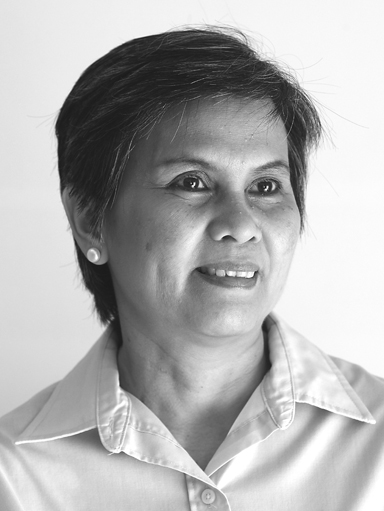
Atty. Gloria Estenzo-Ramos
In action is no longer safe. And to that we say no more.”
This powerful, compelling voice came from 17-year old David Hogg, one of the survivors of the shooting at Marjory Stoneman Douglas High School in Parkland, Florida on February 14.
The deadliest school massacre by a 19-year-old former student, who had the legal permit to carry guns, left 17 dead and 17 injured.
This has since aroused massive movement in the United States for government authorities to match words with action, enact national gun control law and save lives.
The survivors and their families have turned their grief into a national movement. Having seen the violence snuffed out the lives of their precious family, classmates and teachers have instilled such passion that they themselves never imagined they possessed.
They vow to make a difference and they are.
The electrifying March for Our Lives on March 25 saw rallies participated enthusiastically by hundreds of thousands of people from various cities and states, with the youthful survivors and leaders among the speakers.
Their vision for a safe and peaceful world and their commitment to achieve it can shame those who remain ensconced in their comfort zones and their pathetic indifference to the violence and injustice happening in many places.
The quest for peace and a safety reverberates in Cebu and in our country as well where thousands have died from the drug war and for defending our vastly threatened environment.
Do you know that unsolved killings among environmental defenders in the country are one of the highest in the world?
The Guardian reports that “Gangs and governments were largely responsible for the bloodshed in the second and fourth countries on the list: Mexico with 15 killings (a more than fivefold rise over the previous year), the Philippines, which – with 41 deaths – was once again the most murderous country for defenders in Asia.”
https://www.theguardian.com/environment/2018/feb/02/almost-four-environmental-defenders-a-week-killed-in-2017
The Guardian notes that “Justice is rare. The assassins are often hired by businessmen or politicians and usually go unpunished. Defenders, who tend to be from poor or indigenous communities, are criminalized and targeted by police or corporate security guards. When they are killed, their families have little recourse to justice or media exposure.”
What concrete steps had been done about this by the different branches of our government?
Human rights and environmental rights are intertwined. They are guaranteed no less by our Constitution with the State designated as the primary duty-bearer to us, the people, as the right holders.
John Knox, the Special Rapporteur on human rights and the environment, in his last report to the United Nations Human Rights Council on March 5 likewise declared that “human rights and the environment are interdependent: a healthy environment is necessary for the full enjoyment of human rights, and the exercise of human rights is critical for the protection of a healthy environment.”
The Philippines is among the 100 countries which recognize and mandates the right to a healthy environment among the people. But such right is an illusion if not coupled with the guarantee for its citizens to exercise their freedom of expression, participate in decision-making, express their dissent, access information and the justice system, and be respected as deserving a life of honor and dignity.
It is sad that notwithstanding our strong legal framework for protection of human rights including environmental rights, we are lagging in offering that highest degree of protection for the people and our natural life support systems.
The recent terrorism tag heaped on the environmental defenders is adding salt to the festering wound on the government’s inability, neglect and failure to protect the human and environmental rights of its people, including the most vulnerable of them all such as our artisanal fisherfolk, the farmers, the children and the indigenous peoples.
With the vacuum of leadership in steadfastly upholding their rights, the defenders act as their voices and that of Nature.
As environmental defenders are clearly assisting our government in promoting its duty to ensure a safe, sustainable and healthy environment for all, the State is obliged to accord, in John Knox’s words, “respect, gratitude and protection” to them, instead of threats to their lives and security.
These courageous advocates are working hard to ensure a future that does not compromise the rights of our children and the future generations to a safe, clean, healthy and sustainable environment.
These children are looking at us and know who are sincere in protecting them.
1984 Nobel Peace Prize awardee, Archbishop Desmond Tutu, aptly said that “Children are a wonderful gift.
They have an extraordinary capacity to see into the heart of things and to expose sham and humbug for what they are.”
The March for our Lives spearheaded by our youth is their tacit declaration that we, adults, have failed them and that they won’t take it sitting down.